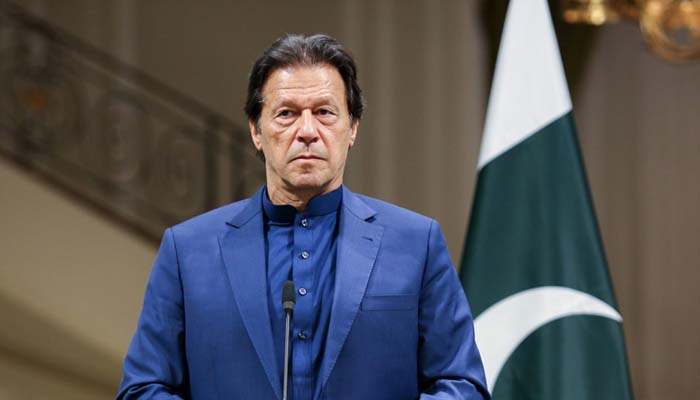Jammu, March 19:
All pieces are falling in place in Pakistan, making it clearer by day the desperation of Pakistan Prime Minister Imran Khan to stay in power, but this possibility looks remote. He has little or no chance to survive the no-trust motion moved against his PTI government by the combined opposition, which is expected to come up in the National Assembly toward this month-end.
The most ominous was the attack by Imran Khan’s supporters at Sindh House in Islamabad where the dissident PTI members of National Assembly were lodged. They had taken refuge there because they felt insecure outside, for there was a fear of them being targeted by the state apparatus and the Imran Khan loyalists. The confrontation between the government and opposition has escalated following the submission of no confidence motion against the government. Such things do happen in democracies, but to bring these political rivalries to streets and attack on the abodes chosen by the opponents is undemocratic . it is as plain as it looks. No crystal ball is required to see what all will happen.
Pakistan’s political circles and commentators see little chance for Imran Khan government to survive the no-confidence motion , as in the run up to the D-day event in the National Assembly , every effort , and that too, crudely , is being made to stifle and threaten opposition . The attack on the Sindh House in Islamabad where the crowds stormed by pulling down the gates and the police acting as proverbial “ silent spectators” has snatched away all the political and moral authority of Pakistan P M to claim that he is the right choice for the office he holds and the government he heads.
These disturbing images emerges from Pakistan have raised many questions about the political stability of the country. Undoubtedly , Pakistan is a nuclear power . It has atom bomb. But the nuclear weapons and assets are not the sources of political stability. When shadows are cast over the political stability , economic and social security also goes downhill.
The culmination of the political battle on streets, now further downgraded to physical assaults sums up a very dangerous situation in Pakistan , where the possibilities of the army intervention and subsequent military rule cannot be ruled out. This is a bad news for democracy , especially in Pakistan where tryst with the vote has often been interrupted by the military interventions . Pakistan’s history is replete with it.
Two sets of conditions result in the military intervention in Pakistan – when the political instability makes public uneasy with the governance failures , and also when the ambitious military chiefs see their chance to fulfil their ambitions beyond the powers they have. The control of the civilian administration by the army is a death knell for democracy , and it is also a fact that , at times the people frustrated by incompetence and corruption of the politicians makes them to see military intervention as a welcome relief . The military , as an institution , retains lot of credibility in the eyes of Pakistani people ..
Whatever happens to the Imran Khan government at the end of the result of the no-trust motion , one thing is clear, even without a crystal ball, there would be more political turbulence all over in Pakistan . If Imran Khan wins the vote, which appears most unlikely, he would be setting his revenge- taking agenda against the opposition . He has already warned the opposition of his “ wrath” once he wins the trust vote . To ensure that his detractors and opposition don’t get to the National Assembly on the day of the vote, PTI has mobilized what it calls a “ million-men rally.” In Islamabad that , is supposed to serve as a thick human wall to the opposition members of the National Assembly . this, in itself is the most undemocratic and violates all the norms of the democratic practices .
And if Imran Khan loses the vote, which Pakistani commentators like Fahd Husain have hinted is a likely scenario, would also result in chaos . Fahd Husain has noted quite emphatically , “ Prime Minister Imran Khan is fighting what increasingly appears to be an unwinnable war..” He has analyzed it quite succinctly : “ As the inebriation of power wears off , it is replaced by the clarity of political morality . Those imbued with the high of pre-power and post-power phases are now faced with the harsh possibility of a no-power life. In this life there will be denial, then heartbreak, and finally pain.”




